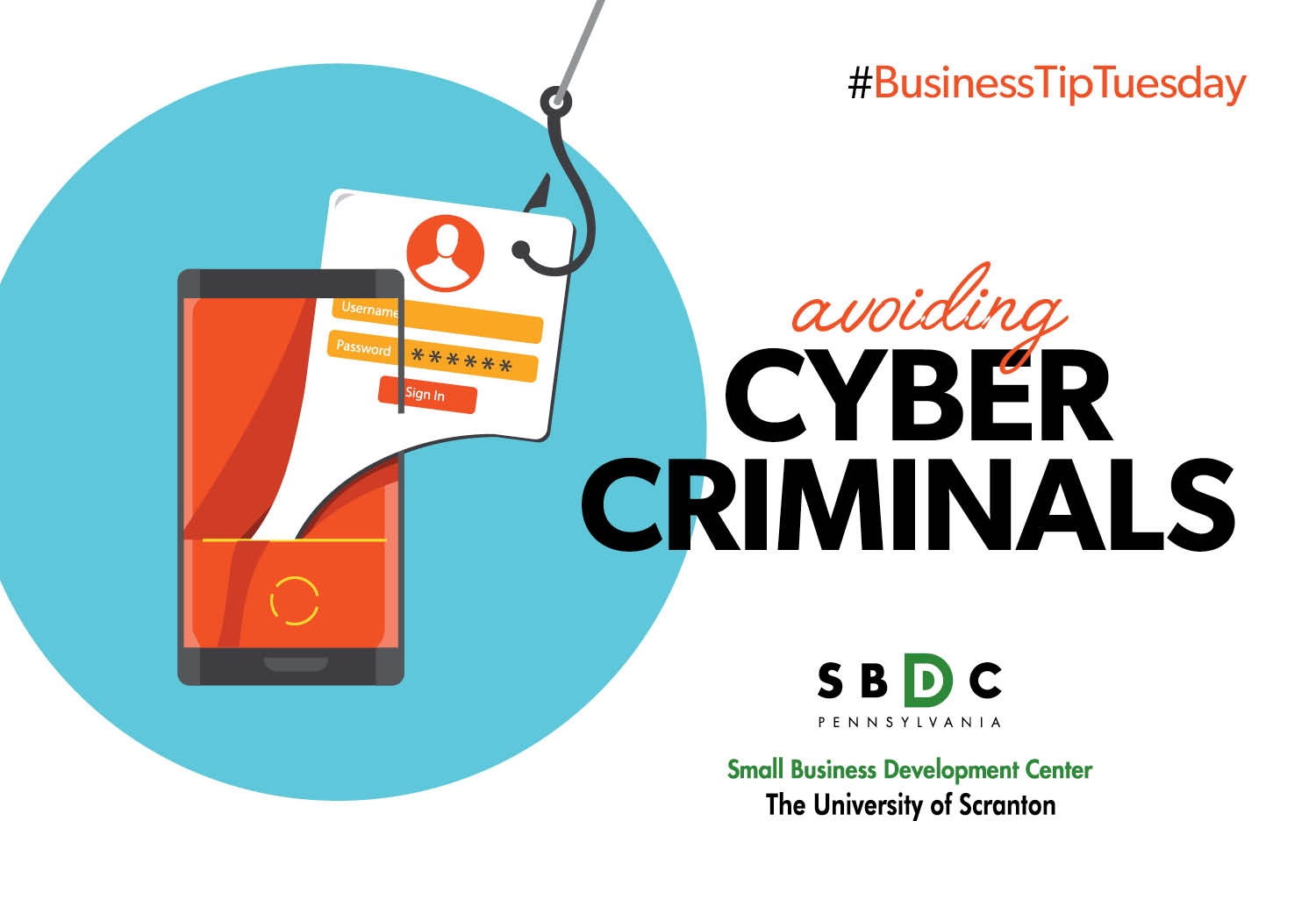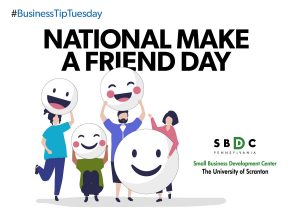The Small Business Development Center is focused on helping small business owners avoid scams and other fraudulent attempts to steal your money and information on the internet. As the internet continues to evolve, many hackers or scammers have cultivated a strong understanding of how to trick users into giving up personal information, especially credit card and bank information. With this information, they have the ability to do everything from make unauthorized purchases with your money or worse, steal your identity. Below, we will discuss some of the ways to recognize an attempt to gather your personal information along with how businesses can also protect themselves from scammers. We will also touch on some of the ways to keep your passwords more secure and get inside the mind of scammers to understand what they look for when trying to hack into your accounts and information.
Phishing
This term is used to define a scam where criminals will appear to be from a legitimate company to try and get you to provide them either your personal information or your company’s information. This scam is widespread and has recently become much more difficult to track as hackers will send emails from familiar addresses such as family members, work colleagues, etc. There are many telling signs that these phishing attempts are not legitimate. Be sure to check for poor grammar, misspellings, or a wrong phone number. The best thing to do in this situation is simply delete the emails and if it is your work email, contact your IT department for assistance in dealing with the phishing attempts in the future.
Password Protection
Making sure that all your online accounts are properly protected can go a long way in making sure scammers do not have access to unauthorized information. Having a strong password for all of your accounts can really go a long way in making sure that this threat is eliminated. To create a strong password avoid using birthdays, addresses, or other information that scammers can recognize and are connected with you in some way. Using a “passphrase” instead that utilizes something much more personal that only you would know is a much safer way than simply using basic information. To make sure you have a handle on all of your passwords, be sure to download a secure password manager app.
IRS Document Scams
Scammers and online hackers also like to take advantage of small businesses, utilizing identity theft to open credit accounts and file fraudulent tax returns under somebody else’s name. They will often obtain Employer Identification Numbers (EINs) to create a false W-2 form or send emails pretending to be executives from a company, asking an employee for sensitive information regarding payroll. In this serious case, the hacker may have access to all W-2 forms across the company. To avoid these scams, stay alert for them and be sure to hang up the phone on potential scammers or delete emails and messages of any sort.
Be sure to keep up to date with the various ways that scammers are looking to steal your information in the future. While it may not seem like a serious threat when browsing the internet, identity theft can happen to anyone. A link to an article with more information is posted below. Stay safe! https://www.sba.gov/business-guide/manage-your-business/small-business-cybersecurity
Sean Myers
WEC Intern
The University of Scranton
Small Business Development Center




